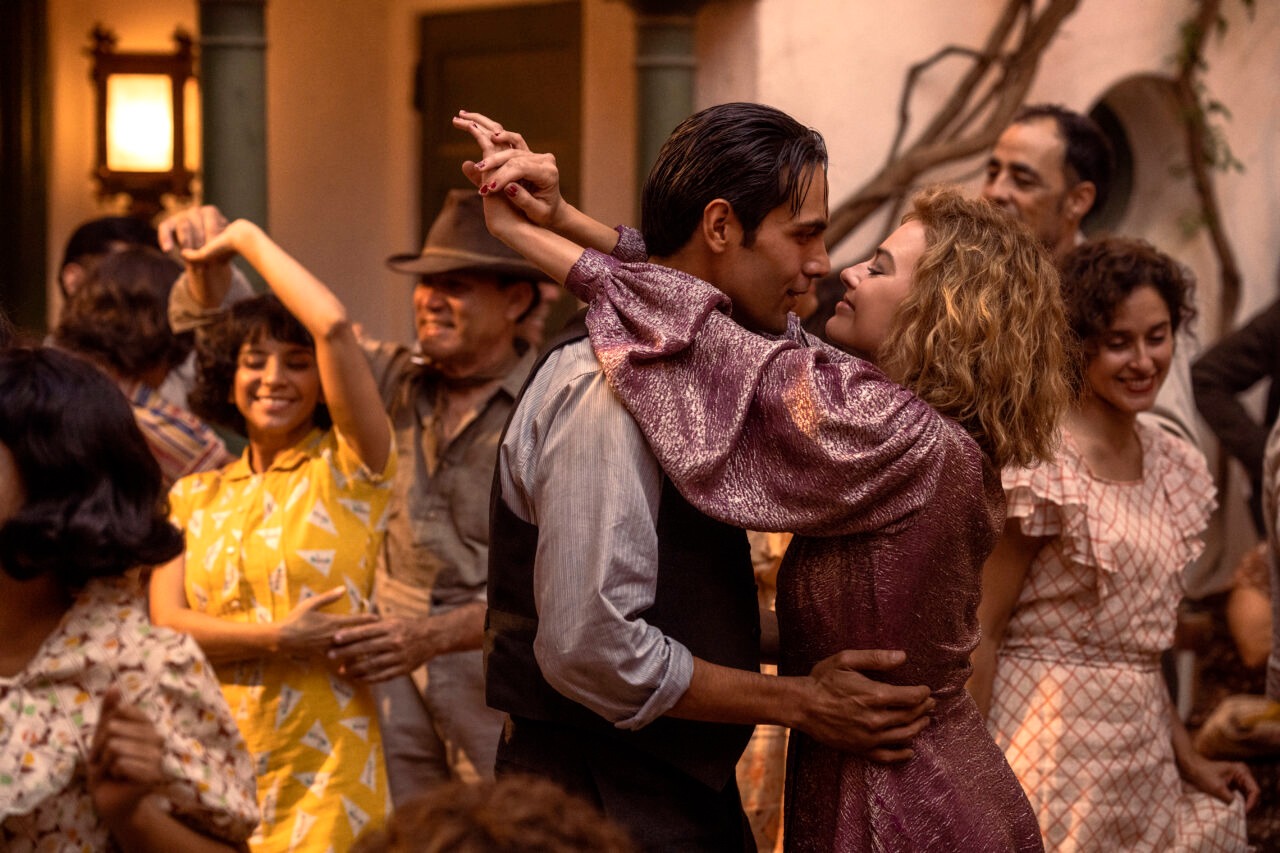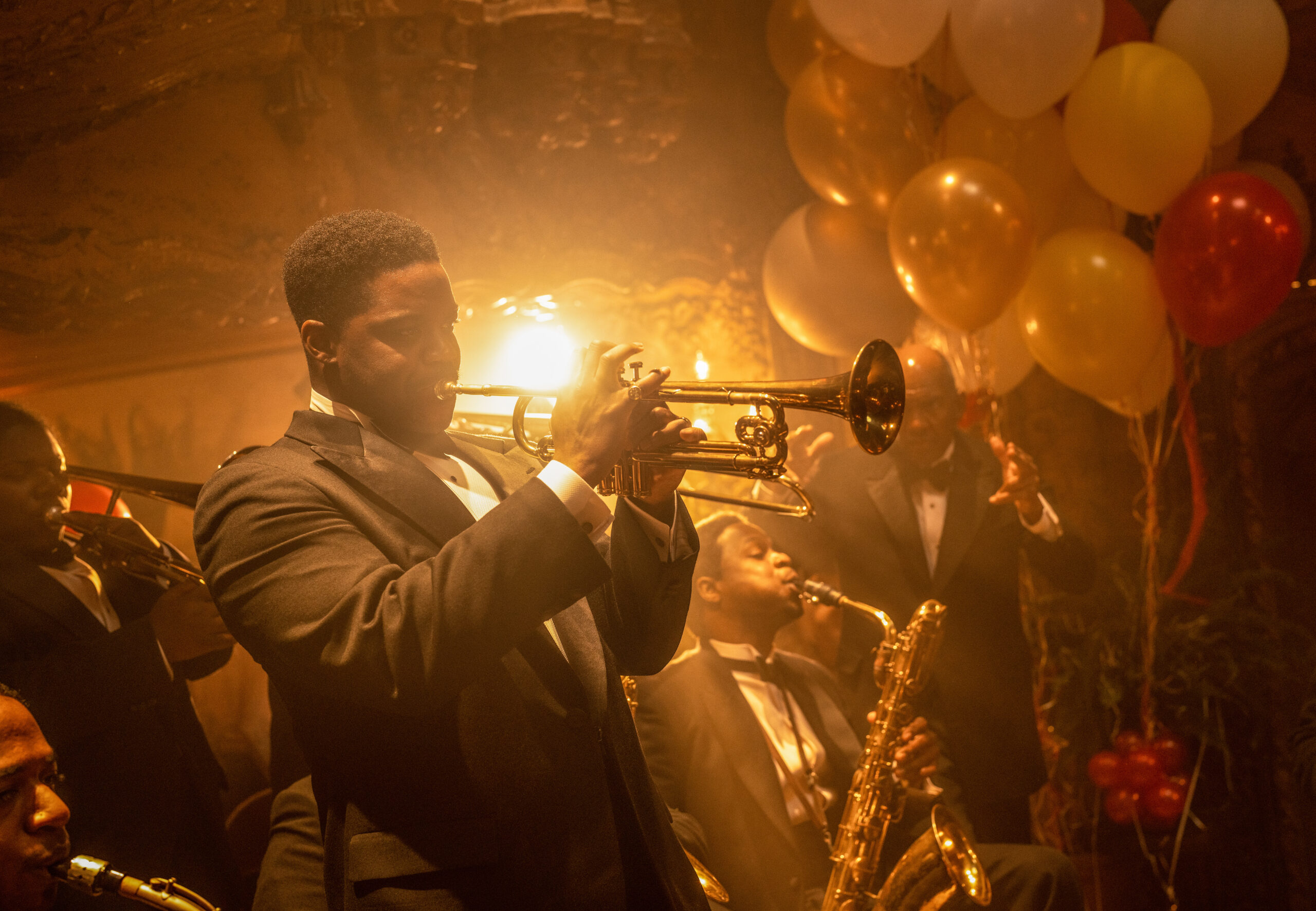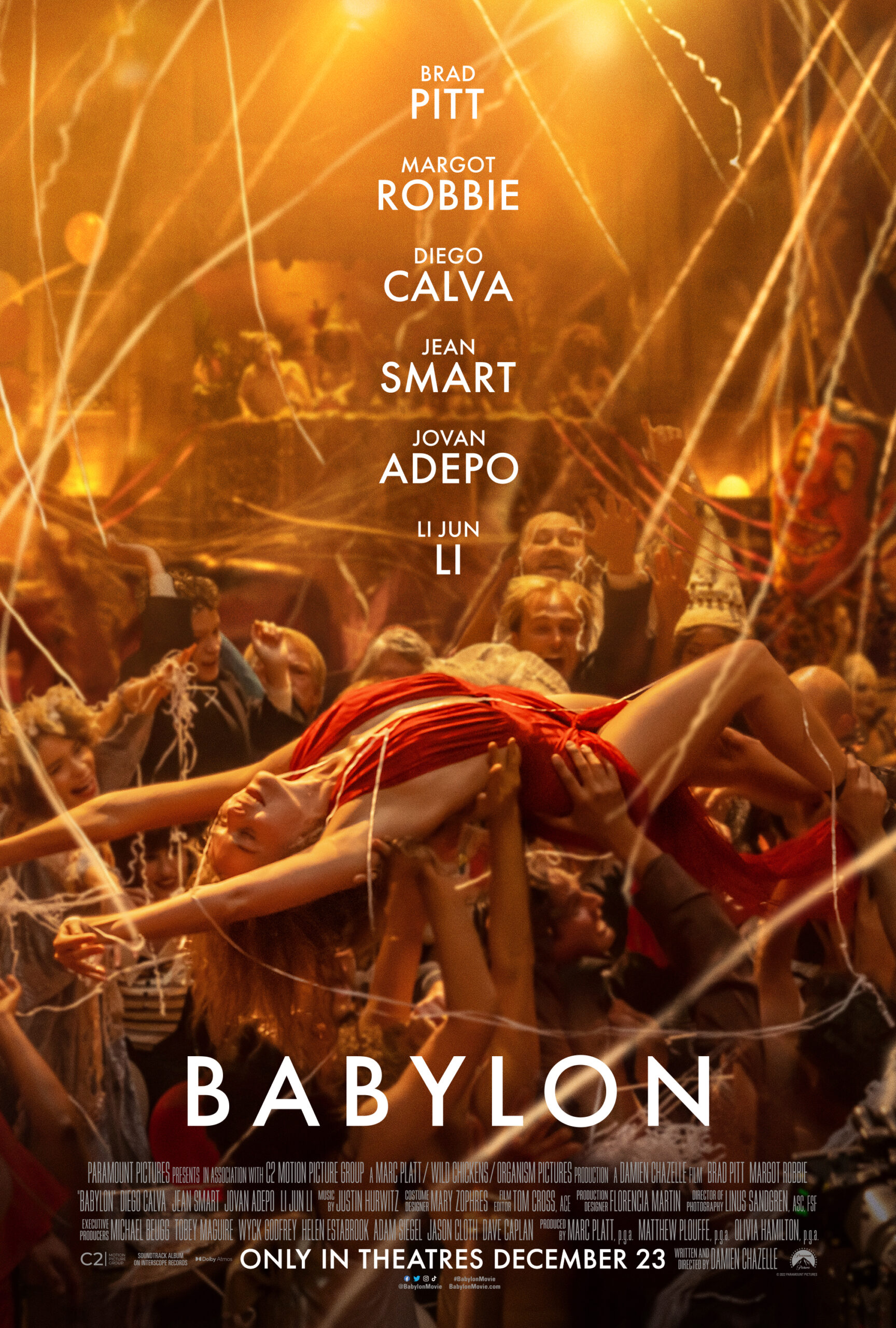Basically: A film about three characters as the silent film era changes to the beginning of the “talkie” era in Hollywood.
Let me start out spicy: I don’t know what Damien Chazelle’s point is with this film. Babylon is the first movie I’ve seen from him where he completely loses the point, as he is too caught up in his desire to go bigger than he ever has. Babylon is set during the 1920s jazz era so, of course, it has jazz music in it but it’s not the focus. Instead, it focuses on three characters in Hollywood and a little on a jazz musician who is mainly in the background.
First, Brad Pitt plays Jack Conrad, a silent-era film star who can still pull audiences in and, at the beginning of the movie, is at the height of his star power. Next is Margot Robbie as Nellie LaRoy, an aspiring actress who has “IT” and a drive to get into Hollywood based on pure charisma. And third, there’s Diego Calva as Manny Torres, a Mexican American man who is trying to break into Hollywood and has to do odd jobs just to get around people so he can be noticed.

Babylon starts out with Nellie meeting Manny outside of a vast party where Jack has also arrived. For the next twenty to thirty minutes, we see a lot of tracking shots of the party’s debauchery. From there, Manny and Nellie get to where they want to be in their careers; with that comes more tracking shots around a silent-era Hollywood set. You’ll meet some interesting characters with older Hollywood acting styles, and it’s good. Still, the performances, along with the camera placement and movement, use visual filmmaking craft to cover up an overall weak story.
The main plot is about these people navigating Hollywood and Manny’s relationship with the other two. While seeing what happens to them is a good start to the film, it really left me wanting more.
The way Babylon is shot—from the framing to camera movements and color palettes—kept my eyes interested. The sound and score are also pretty amazing. Yet it still left me wanting. The costuming is good, and the performances from the stars and the supporting cast are good, but I had to dig for a point—and I don’t think it has a good one.

I feel the film is reaching by tying the story to what Chazelle thinks about the current state of Hollywood. It’s close to the same time in the prior century but, in today’s industry, the changes are more to do with IP-driven theatrical space along with the way streaming is changing the movie business. However, it took me about two-and-a-half hours before I got to this conjecture.
My last problem is Jovan Adepo’s character Sidney Palmer. He’s a jazz trumpeter, leading the band performing at the party at the beginning of the film. Babylon is set in, you know, the JAZZ AGE, so you need a band. For a while, Sidney and his band act like the Greek Chorus in a play, commenting on things that are not really important. But then his character gets a plotline that ends up ham-fistedly dealing with the racism at the time. It doesn’t work and is a bit offensive in how it’s handled. It’s an afterthought—like it’s checking a box—and it could have been left out. It’s better to ignore than do it this poorly.
I really wished I liked Babylon more; I was so excited ‘cause I rock with Chazelle and the trailer was hitting. Yet this ain’t it, no matter how hard it tries to be.
In the End: Babylon is an overly long film that feels more strongly about capturing the vibes of 1920s Hollywood than actually telling a substantial story with a point and theme.



